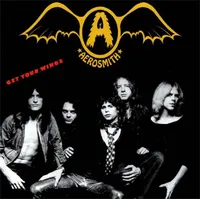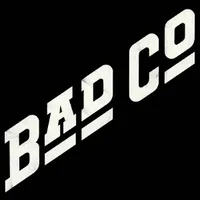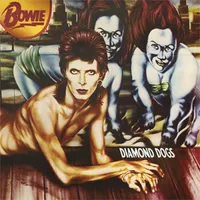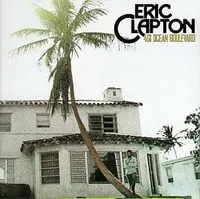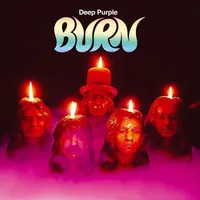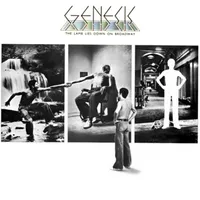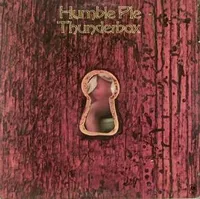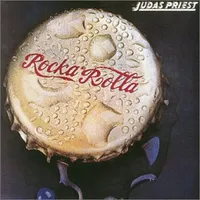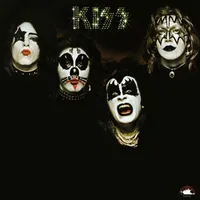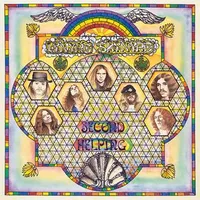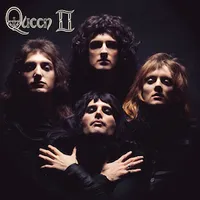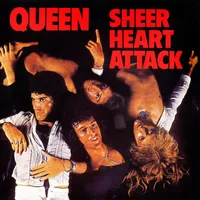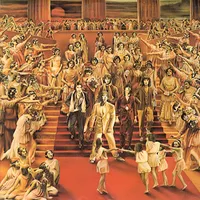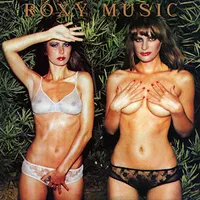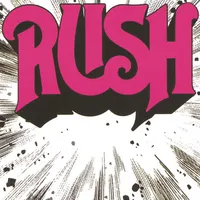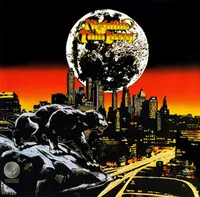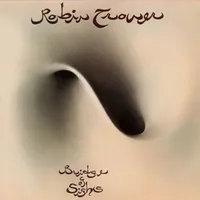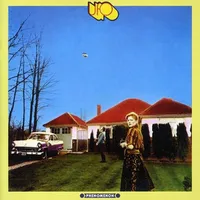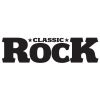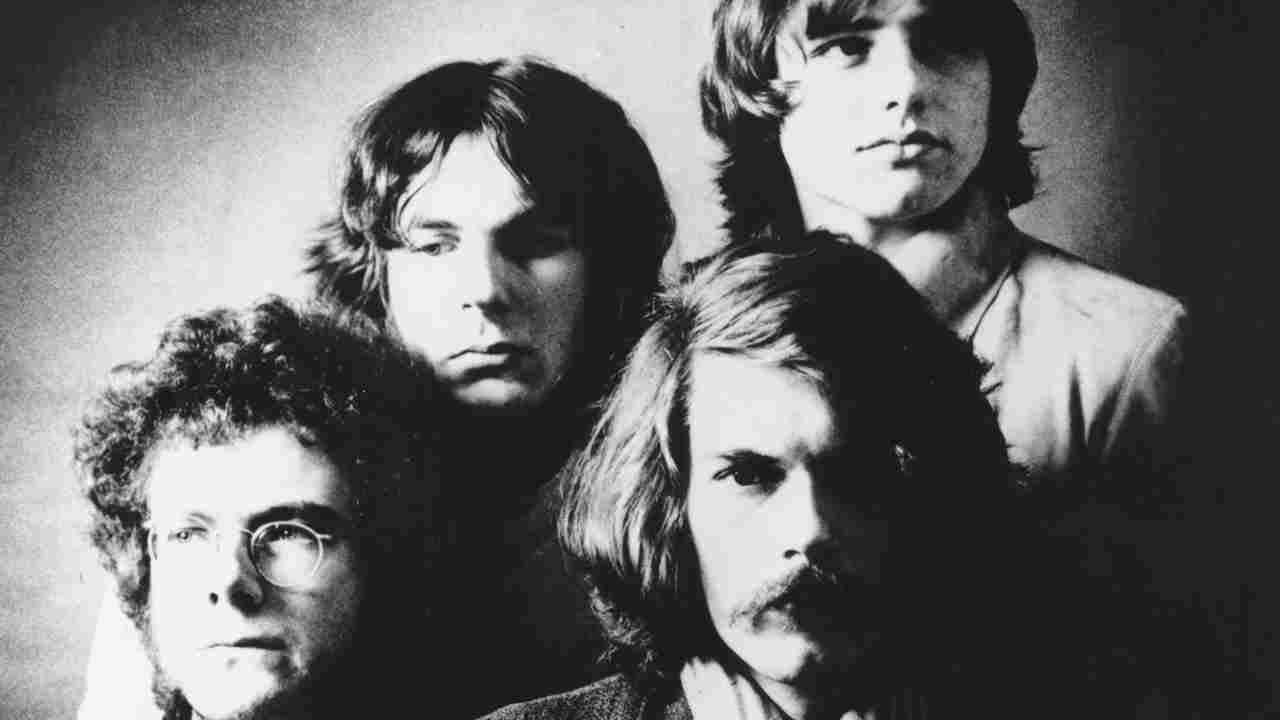The 20 best rock albums of 1974
1974 was a hectic 12 months for Queen which saw them hit gold twice, while Aerosmith started to get into their considerable stride and Skynyrd released their signature track
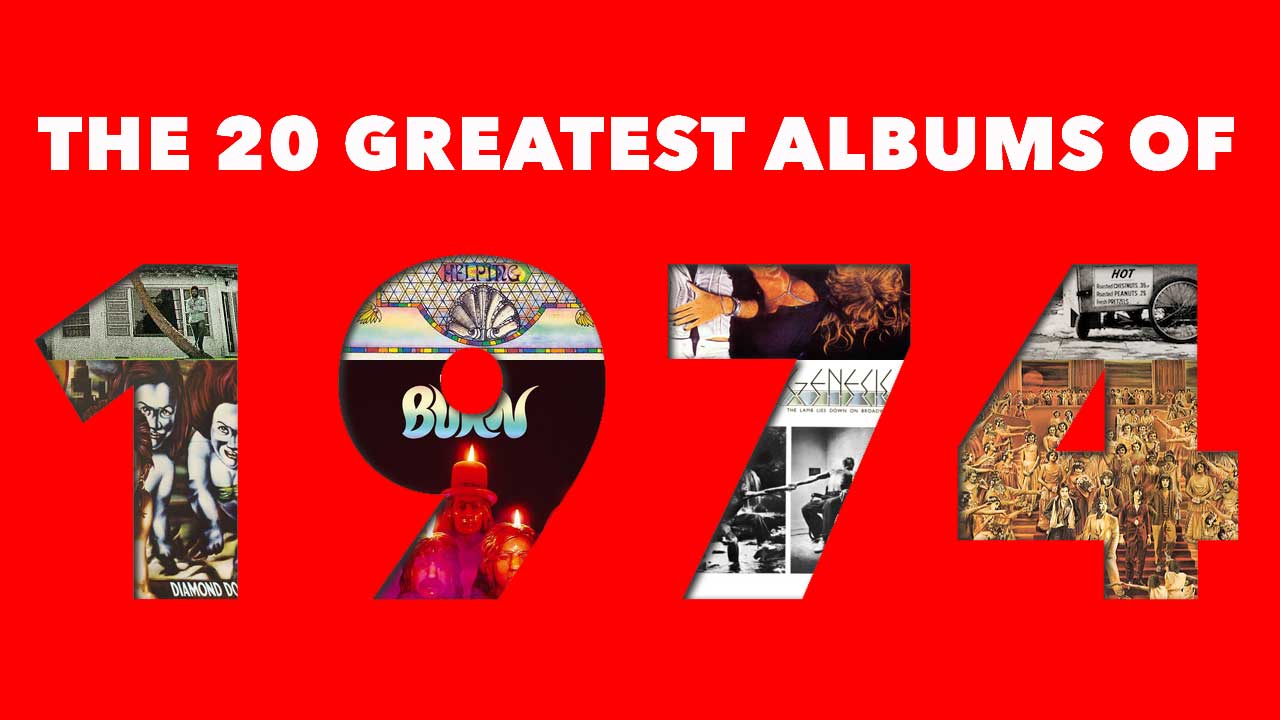
In 1974 UK inflation rose by over 17%, while a dozen eggs in the US cost just 45 cents.
Elsewhere, Richard Nixon became the first US president forced to resign after the Watergate scandal broke, incoming US President Gerald Ford declared an amnesty program for Vietnam War deserters and draft evaders, Muhammad Ali and George Foreman went head-to-head in the so-called "Rumble in the Jungle" in Kinshasa, Zaire (now the Democratic Republic of the Congo), and a smallpox epidemic in India led to the deaths of an estimated 15,000 people.
In music, The Ramones played their first ever show at the Performance Studio in New York, while just five days later Van Halen played theirs at Gazzarri's, on Sunset Strip in Hollywood. 200,000 punters attended the California Jam at the Ontario Motor Speedway, Led Zeppelin launched their Swan Song record label, and Lindsey Buckingham and Stevie Nicks joined Fleetwood Mac.
These are the 20 best albums of 1974.

After toughnut producer Jack Douglas was brought in to crack the whip, 1974 saw Aerosmith produce a second album that throbbed with new-found confidence.
Granted, Get Your Wings was a blues-rock record by any other name, but that didn’t make it any less thrilling. Make a note of these boys, we thought to ourselves, they could go a long way.
Having signed the band to his Swan Song label, Peter Grant supposedly gave Bad Company two weeks to record their debut during a break in Led Zeppelin’s recording schedule at Hedley Grange.
Seizing the opportunity with both hands, the band laid down eight tracks of bar-room boogie that could soundtrack anything from fighting to fucking.
As the Spiders scuttled off, David Bowie hit the studio for a concept album based on George Orwell’s 1984.
The result was an isolated and often ragged collection (Bowie handled most of the guitar duties) that divided critics, but later hit No. 1. It rocks harder than you might remember, with Bowie employing head and hips on tracks such as Rebel Rebel.
Eric Clapton - 461 Ocean Boulevard
Eric Clapton only had two songs written when he entered the Miami studio immortalised in the title of his comeback album.
In spite of that, or perhaps because of it, 461 Ocean Boulevard grew into one of his best records, with the cleaned-up guitarist visiting reggae (I Shot The Sheriff), funkblues (Steady Rollin’ Man) and reflective rock (Let It Grow) with equal aplomb.
Out went Ian Gillan and Roger Glover, in came David Coverdale and Glenn Hughes. While the world waited for them to crumble, the new Deep Purple lineup solidified, and the first fruits of their labours, Burn, sold by the rackful.
“There was a collective sigh of relief that we’d maintained the success level by making the change from Mark II to Mark III,” Coverdale admitted.
Genesis - The Lamb Lies Down On Broadway
A concept album based around the adventures of a New York street urchin named Rael, you could argue that The Lamb... epitomised the pomposity that punk would use its safety pins to deflate.
Maybe so, but this is still a witty and evocative document, and arguably the definitive prog concept album.
The following year would see Humble Pie split (for the first time), but there’s little evidence here of the fatigue cited as their cause of death.
It’s impossible to dress Thunderbox up as anything other than energetic blues-rock, but when it’s played by Steve Marriott and Clem Clempson, we’d argue that’s enough. Thunderbox hardly troubled the charts in 1974, but deserved better..
Although Judas Priest would release heavier and better albums, their debut on Gull takes some beating as a statement of intent.
It was clear we were still dealing with a fledgling band looking for a mast to nail their colours to, but tracks such as One For The Road showed serious promise, and Rob Halford’s trademark shriek was already the most thrilling sound we’d ever heard.
Rewind three decades and Gene Simmons was planting the flag with Kiss’s first slice of big, dumb fun. Musically, this debut is more interesting than Kiss detractors would like to admit, with the band shifting gears between good-time boogie and darker cuts such as Black Diamond.
The notches on his bedpost might still have needed work, but Simmons was already a rock god at this point.
Lynyrd Skynyrd - Second Helping
With the deaths and lawsuits still a few years off, Lynyrd Skynyrd’s second album continued to soundtrack life’s simple pleasures with a fusion of rock, country and blues, all fed through the meat-grinder of Ronnie Van Zant’s larynx.
The Neil Young-baiting Sweet Home Alabama was the big one, of course, but it was just one of many highlights, from I Need You to The Ballad Of Curtis Loew.
Observations that Queen ‘didn’t sound like anybody else’ were never more justified than on this 1974 release. Those who thought the band’s debut had been ambitious were forced to revise their opinion, as producer Roy Thomas Baker threw everything but the kitchen sink into the mix at Trident Studios.
“It went through our minds to call the album Over The Top,” admitted Brian May.
Queen’s second great album of 1974 was a glorious tug-of-war between the virtuosity of May (most notably on Brighton Rock and Flick Of The Wrist) and the hilarious lyrical themes of Freddie Mercury (Killer Queen).
Not bad for an album that was only recorded because May had contracted hepatitis in New York and was unable to tour.
The Rolling Stones - It’s Only Rock ‘N’ Roll
With Keith Richards sinking ever deeper into his various addictions, the Rolling Stones’ final album with Mick Taylor was a circling of wagons rather than a change of direction.
This, emphatically, was only rock’n’roll, but with Mick and the soon-to-be-recruited Ronnie Wood striking gold on the title track (only for Keith to wipe most of his guitar work later on) and Richards’ still churning out the riffs (If You Can’t Rock Me), we liked it anyway.
As implied by the album sleeve (as shown, it depicted two nubile models), Country Life was a record steeped in decadence.
In this case, however, the hedonism was observed through the sophisticated but world-weary eyes of vocalist Bryan Ferry, who spent the album stripping back the layers of glamour and trawling through the decay beneath. Ferry had never been so eloquent, and his band had never sounded so tight.
Heavy as hell and without an inch of the flab that crept in later, Rush’s first album hit with the impact of an H-bomb. Comparisons to Led Zeppelin were made (and readily admitted to), but tunes such as Finding My Way and Working Man were classics in their own right.
“The debut album was made in four days,” Alex Lifeson has since recalled, making it all the more remarkable.
Walter Becker and Donald Fagen had always thumbed their noses at the songwriting rulebook, and Pretzel Logic was no exception. It was a deliciously obscure tapestry of jargon, private jokes and sudden changes of tack, and only had the occasional wobble as it walked the tightrope between experimentalism and self-indulgence.
It shouldn’t have worked, of course, but millions of us agreed that, somehow, it did.
Scott Gorham has reportedly complained about the production on Nightlife, which he felt robbed Thin Lizzy of their balls.
Recorded during a year of upheaval and personnel changes, and while it’s no Live And Dangerous, this album actually offered several standout moments, and a level of variety that has seen it age rather better than the formulaic thud of many later albums.
Robin Trower - Bridge Of Sighs
Incendiary guitar playing softened by psychedelic whimsy were Robin Trower’s calling cards after he jumped ship from Procul Harum. They never came together so thrillingly as on 1974’s Bridge Of Sighs, his second, and perhaps most essential, solo album.
From Too Rolling Stoned to Little Bit Of Sympathy, Bridge Of Sighs managed the rare feat of being both inventive and commercially successful, and deserves its place on the podium.
Nipping out of the Scorpions to play guitar with UFO turned out to be a good move for Michael Schenker. The band fired Bernie Marsden to make room for him, and Schenker was undoubtedly the star on the band’s debut release, exploding out of the speakers on tracks such as Rock Bottom, and graciously stepping back when Phil Mogg wraps his underrated vocal chords round the mic.
It was the old blues-rock template we’d seen a thousand times before, but Phenomenon did it with swagger and charm.
It started with The Gates Of Delirium, a piece based loosely on the concept of Tolstoy’s War And Peace and drenched in Steve Howe solos. Then it kicked into Sound Chaser and To Be Over – both extended sections that made great use of keyboard player Patrick Moraz.
Along the way, Relayer managed to be darker and more brooding than much of Yes’ early work, and endeared itself to a fanbase waiting for a return to form.
- The 20 best rock albums of 1970
- The 20 best rock albums of 1971
- The 20 best rock albums of 1972
- The 20 best rock albums of 1973
- The 20 best rock albums of 1975
- The 20 best rock albums of 1976
- The 20 best rock albums of 1977
- The 20 best rock albums of 1978
Sign up below to get the latest from Classic Rock, plus exclusive special offers, direct to your inbox!
Classic Rock is the online home of the world's best rock'n'roll magazine. We bring you breaking news, exclusive interviews and behind-the-scenes features, as well as unrivalled access to the biggest names in rock music; from Led Zeppelin to Deep Purple, Guns N’ Roses to the Rolling Stones, AC/DC to the Sex Pistols, and everything in between. Our expert writers bring you the very best on established and emerging bands plus everything you need to know about the mightiest new music releases.
